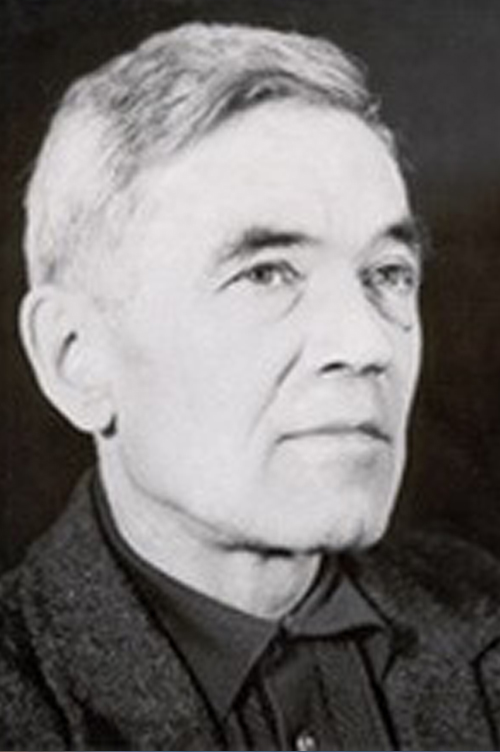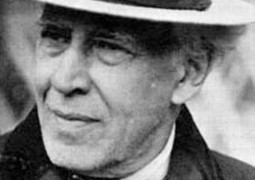Should we study ‘directing actors’ or is talent enough?
(Peter Yershov)
(From The Art of Directing Actors book by Ernest Goodman)
“The artist is nothing without the gift, but the gift is nothing without work.” ~ Emile Zola
I’m often asked ”Isn’t talent enough, do we have to study directing and acting?” Or some will pronounce “Talent is the most important element, many actors and directors have no training at all!”
So, let’s talk about talent. Is having just talent enough to be a good director or actor? Imagine someone who has the gift of being a musician and was also born with a good ear. He didn’t study any music theory and he doesn’t practice playing any musical instruments. In spite of being gifted, he most likely won’t succeed as a musician because in order to be truly good, even a well-gifted person needs to spend years practicing and refining their talent. Let’s use another illustration: picture two people who are equally strong and fast swimmers with well-developed muscles. One has spent years training and developing a swimming technique and the other hasn’t. Now ask any Olympian swimmer who they think will be better and they’ll unabashedly tell you that the one with the best technique will swim faster and longer, have more elegance and grace, and expend the least amount of energy. Alternatively, the person who doesn’t know how to swim with technique perhaps will swim, but his natural talent and other characteristics will not automatically give him an advantage. This concept is applicable to all professions; training, practice and experience lead to the best result. Like the musician, the actor practicing his “instrument” (his body, his mind, his soul) benefits from practice. Like the swimmer, without training, even a natural born artist can’t achieve true excellence.
Peter Yershov (1910 – 1994) – a prominent Russian theater director, wrote in his book “Directing as a Practical Psychology”:
“The principle of least action” is well known from the theoretical physics of the mid 18th century. It states that nature always finds the way where the amount of energy required for any physical action is the smallest possible”. This physical principle applies to the human behavior: if the same result can be achieved in various ways, an individual will use the pass that he believes will require the least expenditure of energy, and subsequently spends no more efforts than, he thinks, necessary to achieve the result. But unskilled person wastes a lot of energy to do a basic job. A drowning man who cannot swim will make too many movements in order to save his life. Such loss of energy is reflected by the extreme importance of saving his life…Experience, training, and practice lead to the best outcome. The higher the level of professional qualifications a person has, the less wasteful his work will be. Thus, the costs of efforts are determined by not only the significance of human goals, but also by the life experience and training.”
This very principle of least action applies to the world of acting and directing where proficient and knowledgeable professionals do their work easy and quickly, and expend the least amount of energy to get a tremendous performances. It is not simple for the actors who do not have adequate foundation and practice to do even the basics: hitting marks, remembering lines, repeating gestures and movements for coverage, and finding their key light. The work of actors and directors is extremely difficult, if you lose focus for one minute and the career consequences can be fatal. The workload is predictably overwhelming. You may find yourself working seven days a week at 12-14 hours a day, often for weeks. Too slow and you are left in the dust. Mortality rates are very high in a film industry. You can easily die working hard. I am joking about mortality…no worries. Any way, under such conditions unprepared person will not even have a good chance to use his gift if he has one.
So, is talent enough? Constantin Stanislavski’s famous quote is “a good actor is 10 percent talent, and 90 percent hard work.” I don’t believe that the gift alone is enough. I’ve seen many students who started out with only a little natural talent, but after years of hard work, study and training, achieved a great deal.
The Art of Directing Actors
Meaningful and successful directing is not an arbitrary manipulation of the actor’s behavior. A director can’t effectively extract a specific result from an actor in the form of an emotion such as cry, be sad, etc. by simply commanding it. The art of directing is expressed in the distillation of ideas, and making the proper choices to best express those ideas. The art of acting and the art of directing are related to each other as in the two sides of one coin.
Average directing is a craft; good directing is a skill; but great directing is an Art. In the world of artistry, it is the artisan’s vision and creativity that transforms the ordinary into a master piece. Directing actors as well as directing by itself requires a possession of inventive and imaginative skills. Shot selection, camera movements, blocking and mise-en-scène as well as instructing actors are not just mechanical skills, they are creative choices.
Learning methods for directing actors is not difficult by itself. The main difficulty lies in the application of the methods. By continuous practice and experience over time, good directing will follow in an easy, elegant and graceful way. Being creative is a supreme goal of an artist, and a director is an artist and the reason this book is called The Art of Directing Actors.
Tags directing actorsdirecting actors in Los AngelesDirecting actors workshopsErnest goodman directing actorsGoodman directing actorshow to direct actors.
You may also like...
Sorry - Comments are closed
















